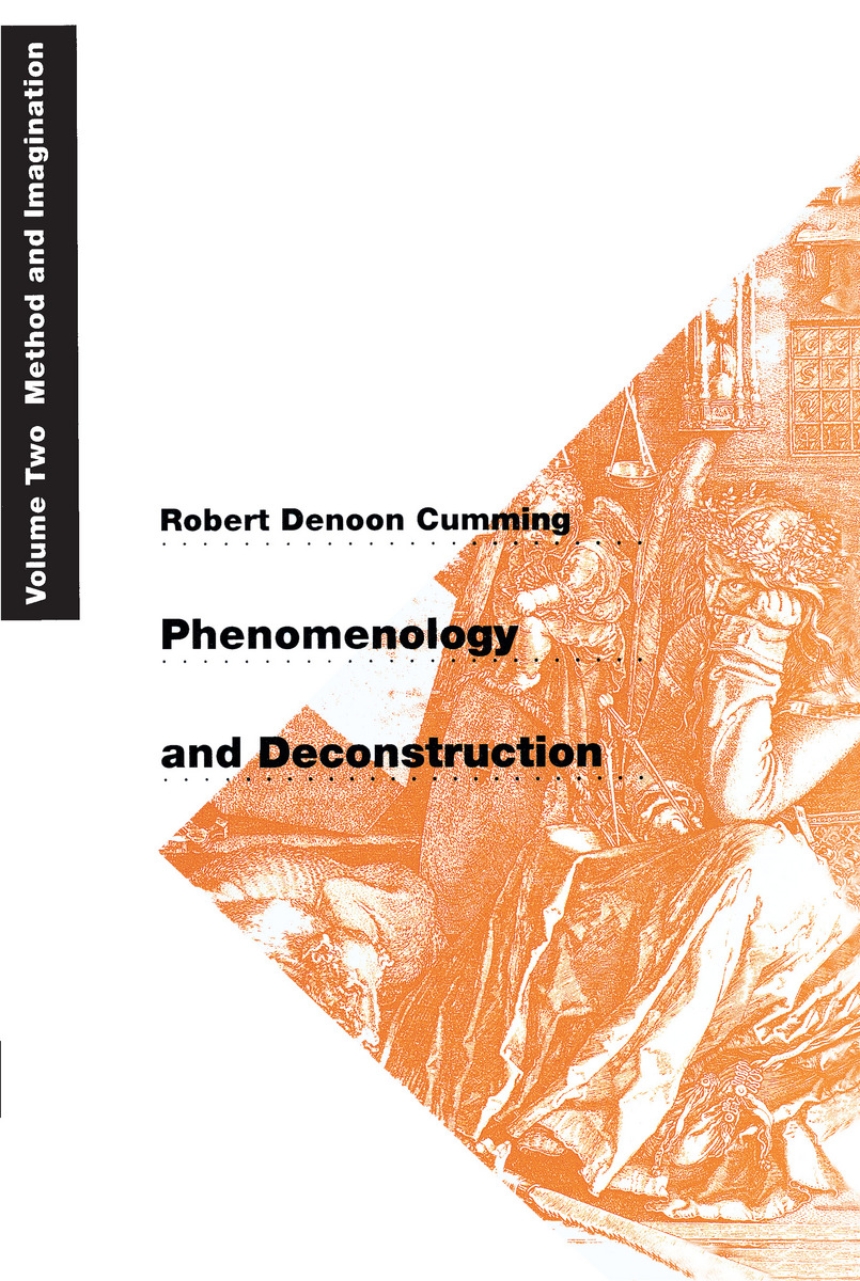Phenomenology and Deconstruction, Volume Two
Method and Imagination
"Husserl had captured me, I saw everything in terms of the perspectives of his philosophy," wrote Sartre of his conversion to Husserl’s phenomenology. In the present volume Cumming analyzes Sartre’s transformation of Husserl’s phenomenological method into a rudimentary dialectic. Cumming thus provides an introduction to phenomenology itself, and more generally to the ways in which debts to previous philosophies can be refurbished in later philosophies. He shows how phenomenology, which for Husserl was a theory of knowledge in which "we can always presume sincerity," becomes for Sartre a theory in which imagination, self-deception, and role playing are crucial.
Cumming also shows that conversion is not merely a personal predisposition of Sartre’s—further manifest in his later conversions to Heidegger and to a version of Marxism. Conversion is also philosophical preoccupation, illustrated by the "conversion to the imaginary" whereby Sartre explains how he himself, as well as Genet and Flaubert, became writers. Finally, Cumming details how Husserl’s phenomenological method contributed both to the shaping of Sartre’s style as a literary writer and to his theory of style.
Cumming also shows that conversion is not merely a personal predisposition of Sartre’s—further manifest in his later conversions to Heidegger and to a version of Marxism. Conversion is also philosophical preoccupation, illustrated by the "conversion to the imaginary" whereby Sartre explains how he himself, as well as Genet and Flaubert, became writers. Finally, Cumming details how Husserl’s phenomenological method contributed both to the shaping of Sartre’s style as a literary writer and to his theory of style.
Table of Contents
Introduction
1. The Passage Way
2. The Disciple
3. The Image
Intentional Analysis
4. In Passing
5. Starting Point
6. A Fundamental Idea
7. The Illusion of Immanence
Relational Analysis
8. The Shift in Method
9. The Shift in Subject
10. Expression and Meaning
11. The Priority of Method
12. Relations
Eidetic Analysis
13. The Eidetic Reduction
14. Dialectical Correlation
15. Sequential Analysis
16. The Plug
17. Toward the Concrete
The Shift in Affiliation
18. Literature
19. The Work of Art
20. In Person
21. A Moral Theory
An Aesthetic Theory
22. Presenting an Object
23. Le Travail du Style
24. En Surcharge
Shifts in the Affiliate
25. Playacting
26. The True Novel
27. The Writer
28. The Conversion to Dialectic
The Itinerary of a Thought
29. Le Travail de la Rupture
30. Radical Renovation
Consciousness and Imagination
31. Radical Conversion
32. Nothingness
33. Freedom
Conclusion: Questions of Method
Epilogue: The End of Philosophy
Notes
Works Cited
Index
1. The Passage Way
2. The Disciple
3. The Image
Intentional Analysis
4. In Passing
5. Starting Point
6. A Fundamental Idea
7. The Illusion of Immanence
Relational Analysis
8. The Shift in Method
9. The Shift in Subject
10. Expression and Meaning
11. The Priority of Method
12. Relations
Eidetic Analysis
13. The Eidetic Reduction
14. Dialectical Correlation
15. Sequential Analysis
16. The Plug
17. Toward the Concrete
The Shift in Affiliation
18. Literature
19. The Work of Art
20. In Person
21. A Moral Theory
An Aesthetic Theory
22. Presenting an Object
23. Le Travail du Style
24. En Surcharge
Shifts in the Affiliate
25. Playacting
26. The True Novel
27. The Writer
28. The Conversion to Dialectic
The Itinerary of a Thought
29. Le Travail de la Rupture
30. Radical Renovation
Consciousness and Imagination
31. Radical Conversion
32. Nothingness
33. Freedom
Conclusion: Questions of Method
Epilogue: The End of Philosophy
Notes
Works Cited
Index
